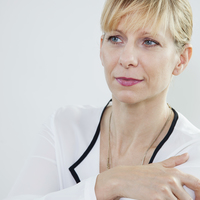Workshop with Prof Edward Jones-Imhotep, May 17 2018, 3-6pm, Center History of Knowledge, ETH Zürich, IFW C 42. The aim of this workshop is twofold: The first part highlights the topical issue of technological selfhood, that is to say... more
Workshop with Prof Edward Jones-Imhotep, May 17 2018, 3-6pm, Center History of Knowledge, ETH Zürich, IFW C 42.
The aim of this workshop is twofold: The first part highlights the topical issue of technological selfhood, that is to say the reciprocity of “how we make machines and machines remake us” (Peter Galison). The second part of the workshop is devoted to new perspectives on science and technology during the Cold War. How did this conflict operate as an “intellectual force field” (Nils Gilman) that helped shape knowledge production, technology, and (self-)perception? Both questions can be tackled separately, but also intertwined. The workshop is based on the research interests of our invited guest, Edward Jones-Imhotep. He is currently working on a new book project on reliable humans and trustworthy machines, from the guil-lotine in revolutionary France to industrial breakdowns in the American Jazz Age. Edward Jones-Imhotep is Associate Professor of History at York University, Toronto. He received his PhD in the history of science from Harvard University. He is the author of The Unreliable Nation: Hostile Nature and Technological Failure in the Cold War (MIT Press, 2017) and the award-winning essay “Malleability and Machines: Glenn Gould and the Technological Self” (2016 winner of SHOT’s Abbot Payson Usher Prize)
The aim of this workshop is twofold: The first part highlights the topical issue of technological selfhood, that is to say the reciprocity of “how we make machines and machines remake us” (Peter Galison). The second part of the workshop is devoted to new perspectives on science and technology during the Cold War. How did this conflict operate as an “intellectual force field” (Nils Gilman) that helped shape knowledge production, technology, and (self-)perception? Both questions can be tackled separately, but also intertwined. The workshop is based on the research interests of our invited guest, Edward Jones-Imhotep. He is currently working on a new book project on reliable humans and trustworthy machines, from the guil-lotine in revolutionary France to industrial breakdowns in the American Jazz Age. Edward Jones-Imhotep is Associate Professor of History at York University, Toronto. He received his PhD in the history of science from Harvard University. He is the author of The Unreliable Nation: Hostile Nature and Technological Failure in the Cold War (MIT Press, 2017) and the award-winning essay “Malleability and Machines: Glenn Gould and the Technological Self” (2016 winner of SHOT’s Abbot Payson Usher Prize)
Research Interests:
Research Interests:
Research Interests:
Research Interests:
Research Interests:
Research Interests:
Research Interests:
Research Interests:
I will talk about my current book-project on the architecture of survival in the Cold War.
